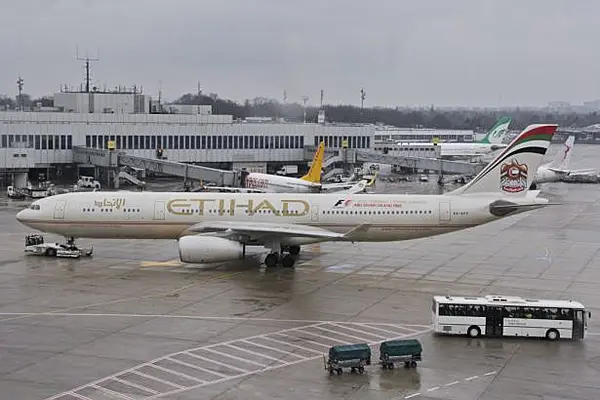Etihad Airways has reported a second consecutive annual loss, blaming rising fuel prices, the cost of its ambitious turnaround plan and lost business due to the collapse of Air Berlin and problems at Alitalia.
United Arab Emirates-based Etihad has been overhauling its business since it made a near $2 billion loss in 2016, by replacing its top executive, dropping unprofitable routes and retiring costly aircraft among other measures.
The state-owned carrier, which competes with Emirates among others, said its losses narrowed to $1.52 billion in 2017 as it cut costs by 7.3 percent and its revenue rose by 1.9 percent to $6.1 billion. Passenger numbers, however, were flat at 18.6 million and it filled an average of 78.5% of its seats, also little changed from 2016.
Middle East travel demand has slowed in recent years as budgets tightened under pressure of low oil prices.
Oil prices have rebounded sharply this year, potentially boosting corporate demand for air travel but they also mean a rise in fuel costs, one of the single largest operational expenses for airlines.
"These are solid first steps in an ongoing journey to transform this business into one that is positioned for financially sustainable growth over the long term," Etihad's Group Chief Executive Tony Douglas said in a statement. He took on the role in January.
His predecessor's strategy of investing in other airlines seemingly collapsed last year when minority-owned Air Berlin and Alitalia filed for insolvency. Etihadcurrently holds stakes in four other airlines, half as many as it once held.
Etihad's overhaul has included reviewing billions of dollars of aircraft ordered from Airbus and Boeing, but few details of its broader turnaround strategy have been made public. Reuters reported on Wednesday (June 13) that Etihad was exploring options with Boeing to cancel or defer orders for 777X jets.
Its 2017 annual results only covered the airline's core operations and did not include other related entities under its parent Etihad Aviation Group (EAG). An audited financial statement was not disclosed.
The United Arab Emirates signed an agreement with the United States in May committing Etihad, and Emirates, to financial transparency. Under the agreement,Etihad is to issue regular financial statements after its restructuring is complete, but has not said when that will be.
News by Reuters, edited by Hospitality Ireland. Click subscribe to sign up for the Hospitality Ireland print edition.









